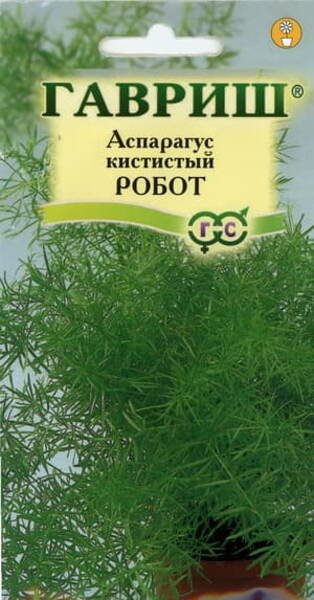An indoor plant with a thin, curly, twisted shoot up to 2 m long. The leaves are linear and light green. It blooms with small white fragrant flowers. The fruits are small, spherical, red.
The plant prefers light, fertile soils rich in organic matter. It develops best at a temperature of +18+22°C, with good lighting. It needs uniform, moderate watering, spraying and weekly fertilizing.
The seeds are sown in the spring in loose, nutritious soil, slightly sealing them. Before sowing, the seeds are soaked in warm water for two days. Before the emergence of seedlings, the crops are covered with light-proof material, ensuring good ventilation. At a temperature of +20°C, seedlings appear in 3-4 weeks. The seedlings are picked one by one into pots. Young plants must be protected from direct sunlight.
* Shatavari (Asparagus racemosus) is the most famous tonic for the female reproductive system of any age.
Female and male infertility, impotence and frigidity, sexual disorders:
regulates the menstrual cycle, is used in the treatment of dysmenorrhea (painful menstruation), amenorrhea (absence of menstruation) and other physical and mental disorders associated with the menstrual cycle.
Shatavari is effectively used during menopause to prevent and treat menopausal symptoms (hot flashes, sweating, palpitations, vaginal dryness, sudden mood swings, obesity, insomnia, depression, etc.).
Stimulates immunity.
Ensures normal oxygen supply to the female genital organs, eliminates congestion in the pelvic organs, normalizes the functioning of the urinary tract.
Slows down the aging process.
Shatavari is used in the complex treatment of estrogen-dependent diseases (fibroids, mastopathy, endometriosis, cervical erosion, sporadic goiter). It is recommended for women who have undergone hysterectomy. In addition, shatavari is an effective emollient for atrophic hypoacid gastritis, gastric ulcer.
Pregnancy and postpartum period: it is recommended to use during pregnancy and in the postpartum period to maintain the health of the mother and child. Prevents or alleviates various symptoms of pregnancy (fatigue, dizziness, nausea, etc.). Stimulates lactation and improves the quality of breast milk.
From the point of view of Ayurveda, shatavari promotes the development of love and devotion, saturates the physical body with higher consciousness.
Antidepressant.
Eng.: Shatavari, Satavar, Shatamull. Bot.syn.: Asparagopsis abyssinica, Asparagopsis acerosa, Asparagopsis brownei, Asparagopsis decaisnei, Asparagopsis floribunda, Asparagopsis hohenackeri, Asparagopsis javanica, Asparagopsis retrofracta, Asparagopsis sarmentosa, Asparagopsis subquadrangularis, Asparagus acerosus, Asparagus dubius, Asparagus fasciculatus, Asparagus jacquemontii, Asparagus penduliflorus, Asparagus petitianus, Asparagus stachyoides, Asparagus tetragonus, Asparagus zeylanicus, Protasparagus jacquemontii, Asparagus aetiopicus, Asparagus racemosus var. tetragonus.















